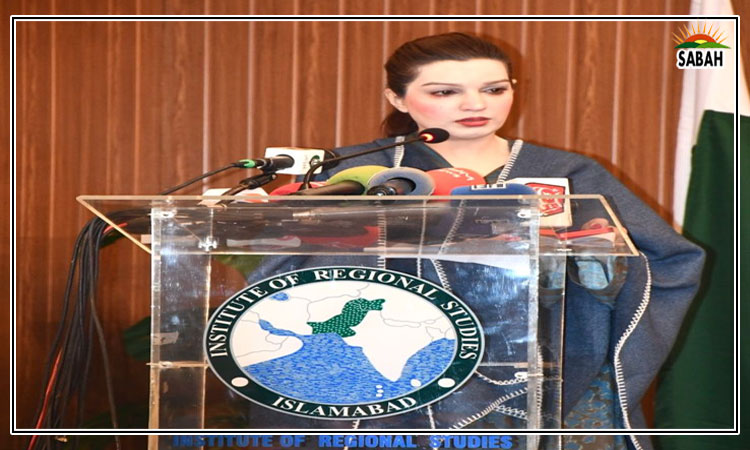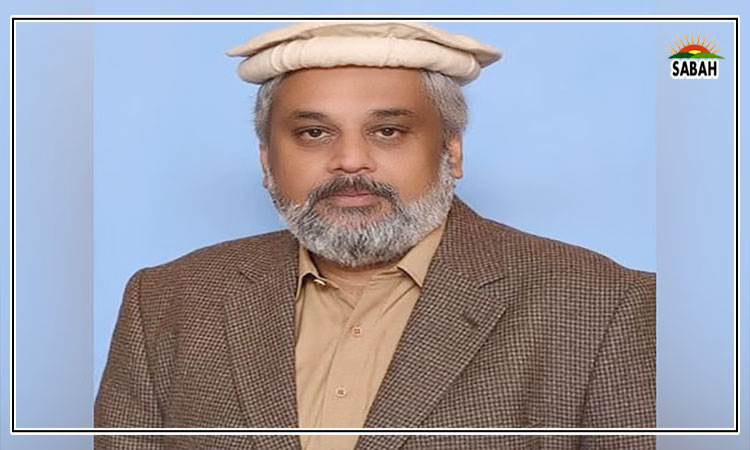A peek into the future…Atta-ur-Rahman
Artificial intelligence (AI) and quantum computing (QC) are two rapidly advancing fields of technology with immense potential for revolutionizing civilization.
The convergence of these two cutting-edge technologies one (AI) concerned with software while the other (QC) concerned with hardware will change almost every aspect of our lives with huge impacts on medicine, engineering, environment, agriculture, industrial manufacture, urban development, scientific research, our understanding of the universe, and the future of warfare.
Quantum computers work in a fundamentally different manner than normal computers. Classical computers use bits as their basic unit of data, and they depend on using a binary code code (1 or 0) in serial processing. Quantum computers, in contrast, use qubits as their unit of data. Qubits can exist in multiple states at once, which enables them to be far more powerful than conventional supercomputers.
As a result, a quantum computer can solve problems in a few minutes which the fastest supercomputer will take hundreds of thousands of years to solve. In 2019, Sycamore completed a task in 200 seconds that Google claimed would take a state-of-the-art supercomputer 10,000 years to finish. Quantum computers are now being designed with thousands of qubits, which will result in an exponential increase in processing power. Before long miniature versions will become commercially available.
Let us consider a few examples. The search for a cure for different types of cancers has been pursued vigorously over the several decades with limited success. The integration of AI and QC can revolutionize the drug discovery process, accelerating the identification of potential drug candidates for various cancers and predicting their efficacy with remarkable precision.
AI, when combined with QCs processing power, can also improve medical imaging technologies, enabling faster and more accurate diagnosis of diseases such as cancer, cardiovascular conditions and neurological disorders. This combination can unlock the full potential of genomics by analyzing vast genomic datasets to identify patterns and uncover genetic predispositions to diseases. The greater understanding of the genome of different plant and animal species and the relationship of the structure of the genome with function, will allow the creation of new forms of life species, tailored to our needs, in the laboratory.
The combination of AI and QC can also accelerate advancements in materials science and nanotechnology, thereby revolutionizing fields like electronics, energy storage, and biotechnology. This will also impact the development of intelligent machines capable of performing complex tasks with precision and adaptability. It will allow optimization related to energy grids and storage, leading to enhanced efficiency and renewable energy integration.
There will be a huge impact on global agricultural productivity too. AI algorithms will be used to analyze weather patterns, soil conditions, and crop genetics, while QC will rapidly process large datasets, leading to improved crop productivity and resource management. This will enable precision farming techniques, including targeted irrigation, optimized fertilizer usage, and personalized pest management.
By integrating real-time data from sensors and satellite imaging with AI algorithms empowered by QC, farmers will be able to make informed decisions to maximize yield and effectively control pests, leading to effective and sustainable agricultural practices. The QC-enabled data processing with AI algorithms, real-time monitoring of ecosystems, wildlife populations, and pollution levels will hence become feasible, thereby facilitating proactive conservation measures and resource management.
Industries too will undergo fantastic changes. The quality of the manufactured products will be strictly controlled without human involvement, since AI algorithms can leverage QCs capabilities to detect anomalies, predict potential faults, and optimize quality inspection procedures. This will ensure the production of high-quality products while minimizing defects and waste.
Smart cities will emerge, since AI algorithms can process vast amounts of data related to traffic patterns, energy consumption, and public services, while QC can rapidly analyze various scenarios, leading to improved urban sustainability and liveability. Traffic management and transportation systems too will undergo transformative changes since AI algorithms can analyze real-time traffic data and optimize routing, traffic flow, and public transportation schedules, while QC can solve complex optimization problems to reduce traffic congestion and improve overall transportation efficiency.
The combination of AI and QC will accelerate scientific simulations and modelling, enabling researchers to tackle complex problems in fields such as physics, chemistry, and biology. By harnessing the combined power of AI and QC, the pace of scientific discoveries will be greatly accelerated, unravelling the mysteries of the universe such as the nature of dark matter or dark energy which together constitute about 95 per cent of our universe. The synergy between AI and QC will contribute to significant advancements in cosmology and our understanding of the nature of reality.
Warfare too will undergo a complete revolution, with those countries that have a more powerful and better network of quantum computers assisted by even powerful AI systems easily overpowering enemy forces. There will be a huge transformative impact of this integration on military operations, intelligence gathering, autonomous systems, cybersecurity, and strategic decision-making. Countries that have achieved a high level of proficiency in these technologies can gain significant advantages in terms of speed, efficiency, precision, and adaptability, shaping the future of warfare.
QCs processing power combined with AI algorithms ability to coordinate and adapt will facilitate the deployment of autonomous swarms of drones or robotic systems, enabling collaborative and synchronized actions with enhanced speed and precision. QCs unique properties can strengthen encryption methods through quantum cryptography. Quantum key distribution (QKD) protocols can provide secure communication channels by exploiting quantum phenomena, ensuring the confidentiality and integrity of sensitive military communications and data. AI and QC will together provide cognitive assistance to military decision-makers.
Natural language processing (NLP) algorithms empowered by QC will analyze vast amounts of unstructured data, such as intelligence reports and historical records, and provide decision support by extracting relevant information and highlighting key insights. Our armed forces need to join hands with our university research centers to be able to cope with the new generation warfare.
The advent of chatbots and other such tools have provided us with a glimpse of the future. Intelligent machines will be replacing humans in most fields. Pakistan is caught up in the quagmire of political and financial chaos, and our leaders are oblivious to these developments. The future is ours only if we can harness the power and opportunities that are now offered by these developments.
Courtesy The News












